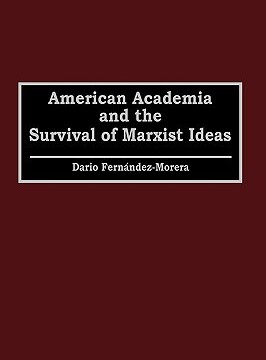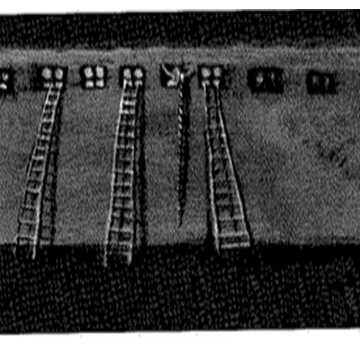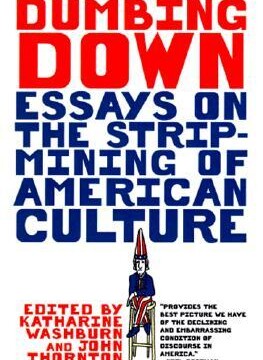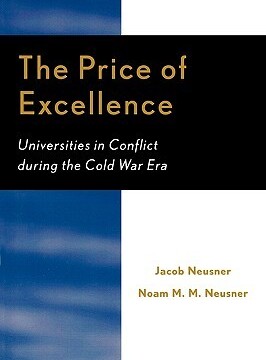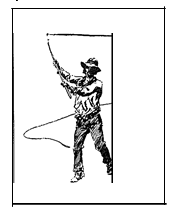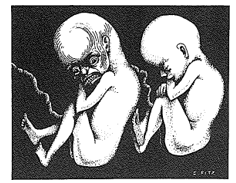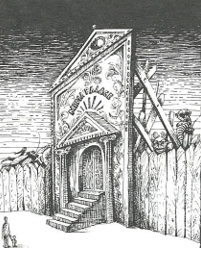The fall of the Wall; the assertion by former communist leaders that they were engaged in systematic espionage against the United States; revelations provided by the Venona tapes of communist activity in this country; the admission by Gorbachev, Yeltsin, and other leaders that communism did not work; General Volkogonov’s concession that President Reagan was justified...
Author: Herbert London (Herbert London)
Parietals Then and Now
As a Columbia University undergraduate in 1956, I resided in Hartley Hall, a stately building on the Morningside campus. During my orientation week I was introduced to my floor counselor who said in an unambiguous way that hijinks would not be permitted on his watch. He highlighted one rule which could never be disobeyed: women...
The Stupid Country
According to a recent Roper poll, only 13 percent of the college graduating class of ’96 could pass a simple quiz on material suitable for elementary school students. Ninety-two percent of those taking this quiz failed to identify the author or the document that is the source of the phrase, “Government of the people, by...
Decline and Fall
“The true university these days is a collection of books.” —Thomas Carlyle When Woodrow Wilson left his position as president of Princeton University to run for governor of New Jersey, a reporter asked him why he would voluntarily give up his prestigious position for a life of public service. Wilson hesitated for a moment, and...
Kiddy Lit for the 90’s
Children’s books used to relate tales of heroes and villains. They presented a Manichaean world in which good triumphed over evil. Children might be scared, but they were assured that the forces of light could easily be distinguished from the forces of evil. Well, that scenario of yesteryear has been replaced by a very different...
Under Fire
Wesleyan University and the University of Connecticut have come under fire from the United States Commission on Civil Rights. According to a startling report to that body from the Connecticut Advisory Committee last January, faculty at these two institutions in particular “resist efforts to diversify curricula and adapt to the changing composition of the student...
Student Radical Activity
Student radical activity is alive and well at American universities. Of course, it is difficult to be a radical when so many radical ideas of the 60’s and 70’s—including feminism, institutionalized egalitarianism, Marxism, messianic environmentalism, race theories, deconstructionism, Lacanism, and moral relativism—are ensconced in what passes for higher education today. But student radicals will try,...
An Inelegant Place
Vancouver was a stately if inelegant place when I last visited it 26 years ago. The harbor was a breathtaking sight, although the downtown area was rundown and the architecture undistinguished. Still, Vancouver was memorable because it was a city framed by mountains, with extraordinary vistas and a congenial climate. It had a rare calm...
Public Trust Doctrine
Public trust doctrine is the latest rage among law professors with a radical agenda. It challenges private ownership of natural resources and believes the state has the right to claim title to those resources in the name of the people. As Professor Robert I. Reis at the University of Buffalo School of Law notes, this...
A New Champion
Political correctness has found a new champion on our college campuses. Professor Betty Jean Craige of the University of Georgia argued in the Chronicle of Higher Education last January that truth has not been subordinated to political goals in American higher education; students today simply “examine critically long-standing ‘truths’ about race, gender, and our civilization’s...
Life as Pathology
The tumultuous events at the New York Post over the last few months serve as a perfect metaphor for New York. This oldest daily in the United States, established by Alexander Hamilton, is (as I write) fighting for its life amid courtroom recriminations over its ownership and purported losses of $1.5 million a week. When...
“Affirmative Action Curriculum” Returns
The “Affirmative Action curriculum” returns east: T. Edward Hollander, New Jersey’s higher education chancellor, has argued that college teachers should “rethink what they teach and . . . seek ways of bridging the gaps between their areas of expertise and the diverse student populations in New Jersey colleges and universities.” What this obscure language means...
Ideological Ardor
Laurie A. Recht, a legal secretary in New York, received encomiums from the press and various and sundry others for endorsing the court-ordered plan for integrated housing in Yonkers last year. In fact, when Ms. Recht was the only speaker in favor of the integration proposal at an open hearing, arguing that the City Council...
Staging A Takeover
Four black students, representing the Union of African Student Organizations, staged a “takeover” at a recent Rutgers University conference on race relations. They grabbed the microphone and proceeded to criticize the audience for its thoughtlessness in not having invited them. In another age, when propriety existed and usurpation was decried, these students would have been...
Rewriting History
Cry Freedom, the Richard Attenborough film, is yet another attempt to rewrite recent history using a prism of liberal shibboleths and the civil rights experience in the United States from which to make judgments. The film is based on the so-called friendship between Bantu leader Steve Biko, the black consciousness proponent, and Donald Woods, a...
Under Attack
Western civilization is under attack at American colleges and universities. The most publicized series of incidents is the willingness of the Stanford University faculty to introduce a replacement for Western civilization that includes equal time for minority contributions and women authors. Presumably what the Stanford faculty has responded to is the charge that the reading...
The New Age in Copenhagen
For centuries philosophers have grappled with the question of how society should be organized. The overarching issues involve the maintenance of order and the distribution of political power. While the answers to these knotty problems varied greatly from Plato to Burke, there was a belief that these concerns were essential lineaments in social organization. Even...
An Executive Fights Back
During the well-publicized oil crisis of the I970’s, populists looking for an easy answer to the problem of excruciatingly long lines at gas stations reflexively blamed the big oil companies. These barons of black gold were accused of bilking the public. So widespread was this sentiment that President Carter himself joined the chorus of blame....
Walden Pond Socialists
Nietzsche’s comment that “the enemy of truth is not lies but convictions” comes to mind while reading An Environmental Agenda for the Future, a collection of statements by leaders of major environmental organizers. In a book of scatter-shot propositions, a few hits are inevitable: the contributors are surely right to criticize misuse of resources and...
The Luddite as Messiah
Jeremy Rifkin declares himself a heretic in this book, but he is more accurately described as a Cassandra and not a Huss or a Bruno. This “new age” doomsayer feels romantic impulses and expresses them with poetic skill, but his limited grasp of history, his absurd economic proposals, and his skewed philosophical perspective still show...
Defending the High Frontier
For some time now, many have accepted the logic of nuclear defense. The strategic and moral superiority of a system that relies on killing weapons instead of people seems—on the face of it—undeniable. By suggesting we build such a defense. President Reagan altered the nuclear calculus in which our civilian population is currently held hostage...
Reconstructing the Bostonians
Reconstructing the Bostonians A popular film that is more than chewing gum for the mind is a rare treat, and a novel of power and poignancy, translated into a well-created film, is sheer bliss. The Bostonians is a love story about an archaic Southern man who falls in love with a beautiful feminist preacher who...
Noble Savagery
The Emerald Forest was often discussed as the surprise film of the summer season. It is certainly that and perhaps more. Although Mr. Pallenberg’s tribute to pristine nature suggests that yet another environmental evangelist walks the corridors of a Hollywood studio, the sheer visual beauty, exacting detail, and anthropological authenticity give this film a majesty...
Screen
Yawning in the Aisles by Stephen Macaulay Stranger Than Paradise; A film by Jim Jarmusch; Samuel Goldwyn. Stop Making Sense; A film by Jonathan Demme and Talking Heads; Cinecom/Island Alive. All the praise that has been heaped on these films might lead you to suppose that Jarmusch and Demme — and the assembled...
Screen – Inventing the News
The Killing Fields; Directed by Roland Joffe; Engima Productions. Any resemblance between The Killing Fields and events in Cambodia during the 1975 holocaust is purely coincidental. What we see on the screen is more often than not a figment of Sydney Schanberg’s well-developed imagination. This film adaptation of Schanberg’s New York Times Magazine story (January20, 1980) about...
Screen – Humor and Intelligence
Comfort and Joy; Written and Directed by Bill Forsyth; a Universal Release. At one point in Comfort and Joy, Alan Bird, a Glasgow disc jockey/radio personality who immersed himself in a feud between Mr. Bunny and Mr. McCool, two mobile ice cream vending companies, makes an attempt at reconciling the warring parties (reminiscent of rival Chicago bootleggers...
Revisions – The Wild (and Tranquil) West
American intellectuals have spent much of this century blaming the frontier experience for everything from cultural poverty (John Crowe Ransom) to “our lawless heritage” (James Truslow Adams). The high rates of violent crime in modern cities, they insist, cannot be caused by anything we are doing now that is, hamstringing the law enforcement system, handingout...
American Proscenium (Part 1)
The New Republic has published an anniversary issue (1914-1984) devoted to its own history. Professor John P. Diggins subtitles this epic as “seventy years of enlightened mistakes, principled compromises, and unconventional wisdom”–an absolution by way of paradoxes. In fact, Prof. Diggins’s report reads as a tale of foolish wise men who may always claim the...
American Proscenium (Part 2)
ABC launched Call to Glory with an heroic promotional effort during the Summer Olympics. The series, which chronicles the life of a reconnaissance pilot and his family in the early 1960’s, is frequently described as unabashedly pro-American. Obviously, ABC hoped to cash in on the “New Patriotism” generated by the games. The show was an...
American Proscenium (Part 3)
Richard Brautigan was a familiar American type that has been with us since the days of the Yankee peddler: the self-appointed Job who wants to take on the powers that be from his chair behind the cracker barrel, the freshman who writes a history of the world without a bibliography, the guttersnipe journalist who runs...
American Proscenium (Part 4)
Cleanth Brooks has been named the 1985 Jefferson Lecturer by the National Endowment for the Humanities. Mr. Brooks, who is best known for his works of literary theory and his expositions of William Faulkner, is one of the last of the band of prophets who found themselves at Vanderbilt University in the l 920’s. Too...
Revisions – Socinian Socialism
The worst thing that can happen to most idealists is to realize their ideals: they have no one to blame the consequences on–except themselves. This is the figure Michael Harrington cuts in The Politics at God’s Funeral: The Spiritual Crisis of Western Civilization (New York; Holt, Rinehart & Winston). As a “democratic Marxist” and atheist, Harrington...
Typefaces – Pulpits and the Press
“The grand Pulpit is now the Press,” Thomas Carlyle argued a century and a half ago, adding that “the true Church of England, at this moment, lies in the Editors of its Newspapers. These preach to the people daily, weekly; admonishing kings themselves; advising peace or war, with an authority which only the first Reformers,...
Reconstructing the Bostonians
The Bostonians: Directed by James Ivory; Screenplay by Ruth Prawer Ghabvala; Merchant-Ivory Production. A popular film that is more than chewing gum for the mind is a rare treat, and a novel of power and poignancy, translated into a well-created film, is sheer bliss. The Bostonians is a love story about an archaic Southern man...
The Media as Fun-House Mirror
The publication of Russ Braley’s Bad News represents a landmark moment in the history of current affairs. No longer will it be possible for some enthusiastic and devoted reader of the New York Times to argue his position without recognizing the extent to which this newspaper has systematically colored the major events of this century....


